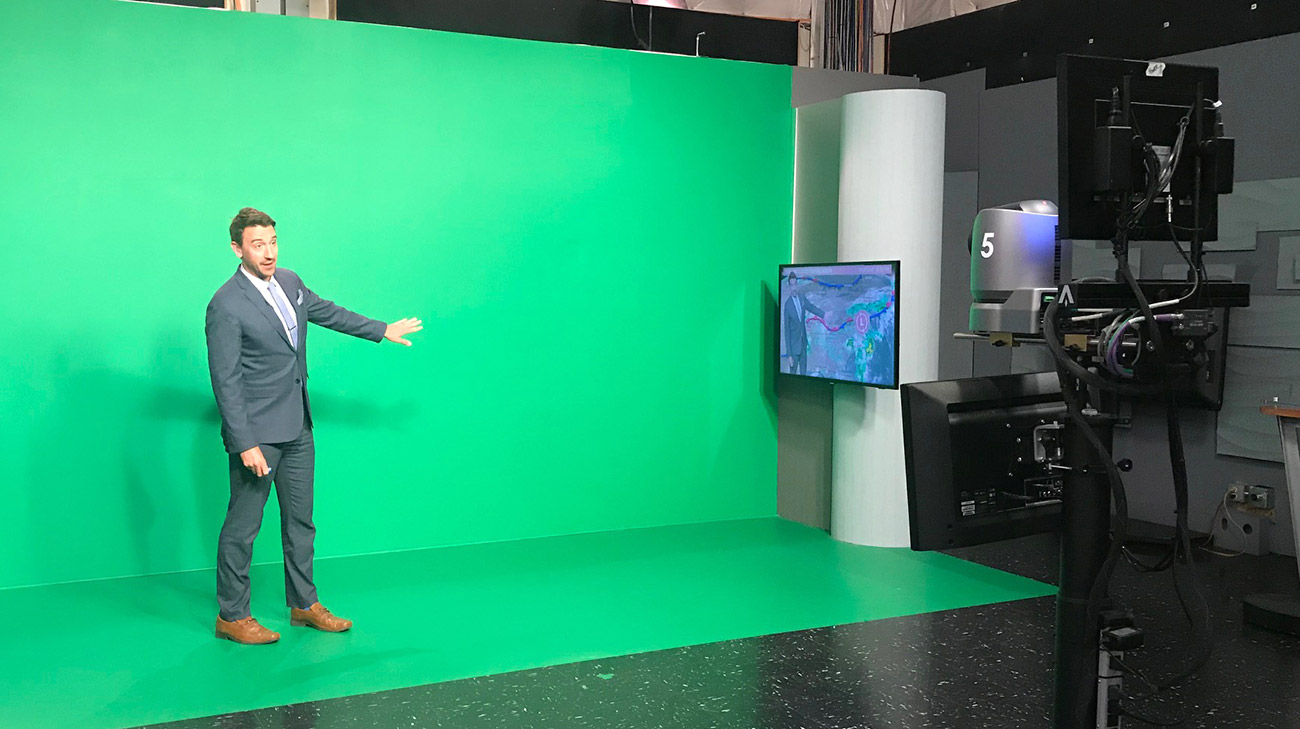
Our voice is one of the many things that most of us take for granted. When meteorologist Matt Wintz developed a scratchy voice in the summer of 2017, he didn't think much of it. "I've lost my voice numerous times, usually from screaming at sporting events or concerts. No big deal,” says Matt. “I assumed it was seasonal allergies."
As the year went on, his voice became noticeably scratchy. "It became noticeable to me, especially when I was doing radio hits. During those segments, all you have is your voice. I also noticed that I lost a range of notes when I tried singing; it was the oddest thing! I knew something was up."
So Matt went to the Cleveland Clinic's Head and Neck Institute to get it checked out. He met with otolaryngologist Tom Abelson, MD, a specialist in Cleveland Clinic’s Voice Center. “Mr. Wintz took the problem very seriously, but did not panic even though his voice is obviously critical to his career goals,” says Dr. Abelson.
"Dr. Abelson took a look at my vocal cords through a scope that goes through your nose. Yuck, right? After making various sounds, we both looked at the video of my vocal cords vibrating together. What he found was a polyp on my vocal cord that was preventing them from vibrating together properly."
Dr. Abelson says that damage to the vocal cords can have many causes, including vocal abuse or overuse. “People who have jobs that are vocally demanding or sports fans who yell and cheer often find themselves losing their voice,” he says. “In most of these cases, people don’t need surgery unless medication, vocal rest and voice therapy don’t work.”
It was recommended that Matt go on vocal rest, but he found that difficult with a two-year-old child at home and a job that requires nearly constant talking. "Between all the weather school visits, broadcasts, and social media videos, it was tough to have any sort of vocal rest. I tried my best, but it just wasn't possible," he says.
As one would guess, his vocal situation did not improve. It actually got much worse in the spring. "March was a very busy month for me. I had ten weather school visits, emceed several events, and we had active weather. It was a month full of talking."
That's when he decided to go to Plan B — surgery. He scheduled another visit with Dr. Abelson and also saw Michelle Adessa, BM, MS, CCC-SLP, a voice therapist at Cleveland Clinic. They all agreed that surgery was the best option for him.
"I'm very happy with the results. The work that Dr. Abelson and his team do is unbelievable. My lower range sounds great, and I'm starting to work on the higher range. I'll be back to singing in the shower in no time."
"The surgery itself wasn't bad at all. You go in, they put you to sleep, and you're back home later that day. The tricky part is that you're not allowed to talk or make a noise for the next five days."
Matt said he downloaded a text to talk app that spoke for him when he needed. "I selected the Australian male voice on the app to make my wife happy. She enjoyed the quiet house with occasional Australian chatter from the next room," Matt joked.
He worked with the voice therapist to learn how to use his voice after surgery. He explained that the entire process was literally rebuilding a muscle from scratch.
"It was really difficult to say just a few words once I was able to talk again — like lots of work. Each and every day my vocal cords got stronger and I was able to talk a few minutes more."
Matt said his 2 year old daughter would ask him each morning if he could talk yet. It was a great moment when he could finally say "yes."
"That was the tricky part, trying to parent with no voice. Luckily I had my family to lean on."
Despite the recommended 4- to 6-week recovery time, Matt returned to Dr. Abelson after 3 weeks and was approved for a return to work. The doctor was impressed with the improvement and just stressed to take it easy while the vocal cords finish healing.
“It’s important for the patient, the physician and the therapist to work together as a team. Mr. Wintz was a great patient,” says Dr. Abelson. “He engaged deeply in doing everything he could to maximize the chances of restoring his voice.”
"I'm very happy with the results. The work that Dr. Abelson and his team do is unbelievable,” says Matt. “My lower range sounds great, and I'm starting to work on the higher range. I'll be back to singing in the shower in no time."
His wife isn't too happy about that, though.
"I'm so blessed to have had the support from the weather team and everyone at the TV station. I'm more than happy to be back and ready to keep everyone ahead of northeast Ohio weather once again!"
Related Institutes: Head & Neck Institute

